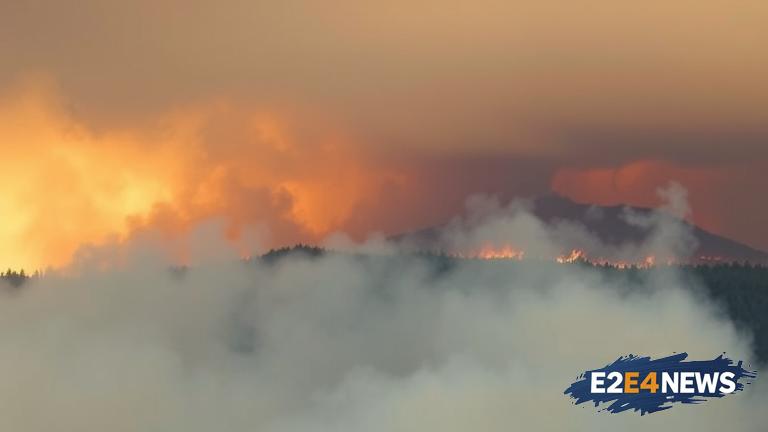The Pickett Fire, a rapidly spreading wildfire in California, has become a major concern for residents and authorities alike. The fire, which started in a remote area, has grown in size and intensity, producing large amounts of smoke that are threatening the state’s air quality. The smoke from the fire has spread across the state, prompting air quality alerts and health warnings. Residents in affected areas have been advised to stay indoors and avoid outdoor activities to minimize their exposure to the hazardous air. The fire has also led to evacuations, with many people forced to leave their homes and seek shelter elsewhere. The cause of the fire is still under investigation, but officials suspect that it may have been sparked by human activity. The Pickett Fire is just one of several wildfires that have broken out in California in recent weeks, highlighting the state’s ongoing struggle with wildfires. The state’s fire season, which typically runs from May to October, has been particularly severe this year, with multiple large fires burning across the state. The fires have been fueled by hot and dry conditions, as well as strong winds, which have made it difficult for firefighters to contain them. Despite the challenges, firefighters have been working tirelessly to battle the blazes, using a range of tactics including aerial attacks and ground-based firefighting efforts. The Pickett Fire has also highlighted the importance of fire prevention and preparedness, with officials urging residents to take steps to protect themselves and their properties from wildfires. This includes creating defensible spaces around homes, having evacuation plans in place, and staying informed about fire danger in their area. The fire has also had a significant impact on local wildlife, with many animals forced to flee their habitats or seek shelter from the smoke and flames. The long-term effects of the fire on the environment and local ecosystems are still unknown, but officials are working to assess the damage and develop plans for rehabilitation and recovery. In the meantime, residents are being advised to stay vigilant and take all necessary precautions to protect themselves and their loved ones from the dangers of the Pickett Fire. The fire has also sparked concerns about the impact of climate change on wildfires, with many experts pointing to the role of rising temperatures and changing weather patterns in exacerbating fire danger. As the state continues to grapple with the challenges of the Pickett Fire, officials are also looking to the future, working to develop new strategies and technologies to prevent and mitigate the effects of wildfires. The Pickett Fire is a reminder of the importance of preparedness and resilience in the face of natural disasters, and the need for ongoing efforts to protect people, property, and the environment from the dangers of wildfires. The fire has also highlighted the need for international cooperation and knowledge sharing to address the global challenge of wildfires. As the situation continues to evolve, residents and authorities will be closely monitoring the situation, working to minimize the impacts of the fire and prevent similar disasters from occurring in the future. The Pickett Fire is a wake-up call for California and the world, highlighting the need for urgent action to address the root causes of wildfires and protect vulnerable communities from their impacts.
